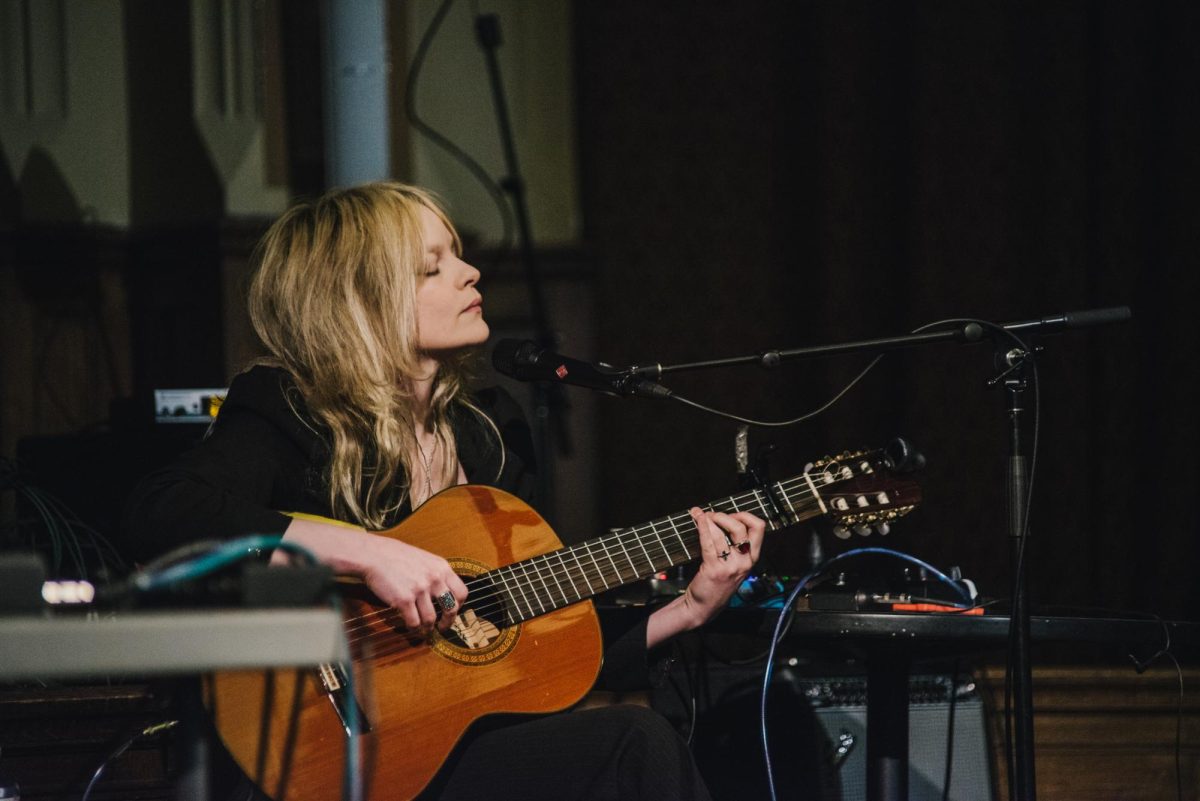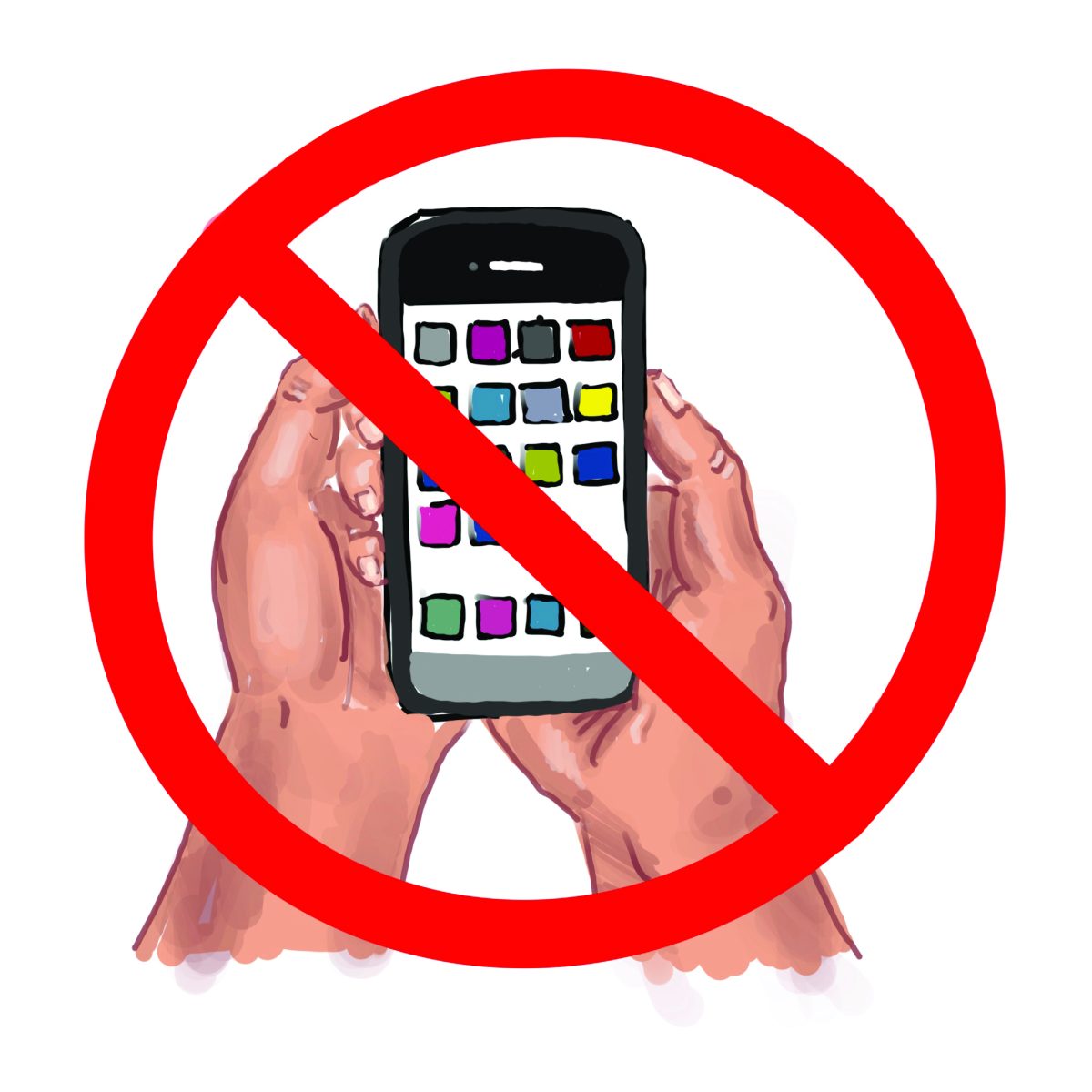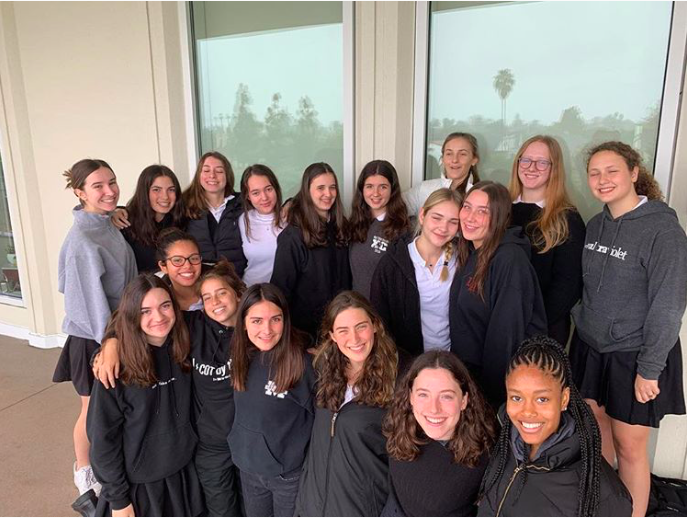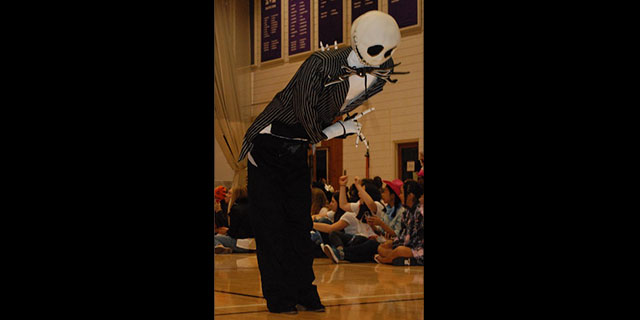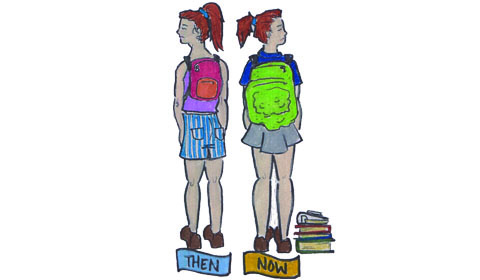
In this section, we aim to shed light on what we view to be a glaring divergence of opinions between our parents’ generation and our own. We seek to voice our perspective on matters that cause friction between the old and the young.
Student perspective by Remy ’14
When my mom was a teenager, back in a decade I am not allowed to reveal, she applied to two colleges: University of Southern California (USC) and Harvard University. She got into both and went to USC because “there were palm trees.”
Seriously.
Needless to say, the field of higher education has changed. For instance, it would be considered poor decision-making nowadays if I were to pick my college based on the shrubbery. Moreover, most parents do not understand that we are working much harder to get into college than they did.
In this day and age, when competition is both fierce and global, rigorous academics begin in preschool. While our parents were chasing ice cream trucks and watching Westerns, we were being pushed into plush, self-described “feeder schools.” A preschool that claims to get you into a good college about, oh, 15 years down the line, is a fairly new invention. Back in our parents’ day, you went to the local preschool, because as every father has told his child, he had to walk “three miles in the snow uphill both ways,” so the closer the school the better.
Besides being college-oriented from a young age, our generation also differs greatly from that of our parents in our avoidance of the topic of college. Most private school kids in LA would agree that college is like some kind of secret cult: you don’t speak of the application process (which may or may not involve the ritual sacrifice of a goat); you don’t talk about where you are applying (because according to Google, there are a lot of cult options in the US) and, above all else, you never share your actual feelings about any place (lest you say something even mildly offensive, like “Oh, I thought their cloaks were a little last season.”) This mysticism is hard to translate to parents, who wind up feeling hurt and left out while we glaringly lock our bedroom doors and delete our computer history so that they can’t see where we sent our Common Applications.
Back in their day, there was simply less competition to get into college from independent schools like Marlborough. But colleges now pride themselves on socioeconomic and cultural diversity. Plus, the number of kids applying to college each year has increased by about five million since the 1980s, while the number of spaces at top colleges has hardly budged. While our parents enjoyed some friendly competition with their next-door neighbors for many spots at a number of good universities, we are going tooth and nail with kids from 2,000 miles across the globe, all equally as determined and nuts as we are. In the face of this competition, students will do nearly anything to get into their dream college, including cheating, lying, stealing etc. I would personally be down to knock off people in the name of the Russia mafia if it would get me that coveted spot at a certain school. (Think about that when you go to sleep tonight.) Many parents even indirectly encourage this attitude, by setting outdated standards for their children to live up to, which ends up turning said kids into adults with poor self-esteem.
I think we would all be a little saner if adults in this community universally lowered their expectations.
Parent perspective by John Bauman (father of Izzy ’15)
I graduated high school in 1977. In 1983 US News & World Report published its first “America’s Best College” issue, ranking the schools according to some esoteric criteria that somehow landed my school, Brown University, around 13th.
Of course, that was ridiculous; John Kennedy had gone to Brown and so, therefore, everyone else in the country was dying to go there. So how could it possibly be ranked so low? In spite of its obvious flaws, the US News & World Report annual college issue became the bible for ambitious parents everywhere. Getting into the Best Schools in America, which was once about as egalitarian as polo, became the democratized blood sport it is today. Not coincidentally, around that time the first Baby Boomers’ children began to reach college age and so, like everything else that generation touched, it began to revolutionize and commodify the process of getting into college almost beyond recognition.
It’s not that we didn’t take SAT’s or write essays, but in hindsight it seems almost comical how relaxed we were about the process as compared today’s high school seniors. Being male and having attended a public high school in Northern California, my experience was vastly different than whatever was going on at Marlborough at the time. Nonetheless, I’m guessing that back then for a Marlborough graduate to aspire to a school any more exalted than USC was probably considered in some circles as bordering on vulgar.
I joke of course, but there’s no question in my mind that the epic competitiveness of the college admission process is one of the more profound societal changes of the many, many changes this country has undergone over the past 35 years.

